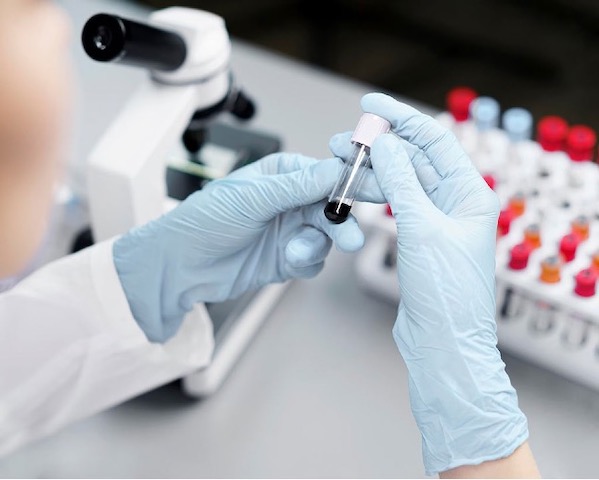Biomarker Signature Test Predicts Which Tumors Will Respond to Immunotherapy
May 1, 2023
Source: drugdu
 4,654
4,654
By LabMedica International staff writers

Bladder cancer is often fatal, and survival rates have not improved in the past 30 years. Although immunotherapy has revolutionized bladder cancer treatment, it has significant limitations, as most patients do not respond to the therapy. Checkpoint immunotherapy drugs, which enable the body's immune system to recognize tumors, are effective for only about 20% of bladder cancers. However, it is unclear which patients will benefit and why these drugs are not more effective for all patients. In a breakthrough that could enhance bladder cancer patients' survival, researchers have now developed a biomarker signature test to predict which tumors will be responsive to immunotherapy.
In the new study, scientists at Northwestern Medicine (Chicago, IL, USA), along with multiple international collaborators, identified three types of tumors that could respond to immunotherapy and two that could not. By employing a combination of gene expression profiling, mutations, and spatial proteomics, the researchers analyzed the non-responsive cancers to pinpoint potential new drugs and therapies that could make them responsive to immunotherapy.
In the study, investigators initiated a Phase II trial with 82 patients who received Keytruda (an immunotherapy) prior to bladder removal. This unique trial evaluated the gene expression profile before and after Keytruda treatment, enabling the researchers to fully measure the response to Keytruda when the bladder was removed. Typically, Keytruda and other immunotherapies are administered to patients with metastatic cancer, and the biological changes that occur in the tumor are not easily monitored with tumor biopsies. By profiling the transcriptome, DNA alterations, and spatial changes that took place in tumors treated with Keytruda, the investigators were able to identify the features associated with response or resistance.
"Thousands of patients have their bladder removed every year, and treating these patients with immunotherapy could improve survival and potentially increase their chance of keeping their bladder rather than having it surgically removed," said Dr. Joshua Meeks, associate professor of urology at Feinberg and a Northwestern Medicine urologist.
Related Links:
Northwestern Medicine
Read more on
- The first subject has been dosed in the Phase I clinical trial of Yuandong Bio’s EP-0210 monoclonal antibody injection. February 10, 2026
- Clinical trial of recombinant herpes zoster ZFA01 adjuvant vaccine (CHO cells) approved February 10, 2026
- Heyu Pharmaceuticals’ FGFR4 inhibitor ipagoglottinib has received Fast Track designation from the FDA for the treatment of advanced HCC patients with FGF19 overexpression who have been treated with ICIs and mTKIs. February 10, 2026
- Sanofi’s “Rilzabrutinib” has been recognized as a Breakthrough Therapy in the United States and an Orphan Drug in Japan, and has applied for marketing approval in China. February 10, 2026
- Domestically developed blockbuster ADC approved for new indication February 10, 2026
your submission has already been received.
OK
Subscribe
Please enter a valid Email address!
Submit
The most relevant industry news & insight will be sent to you every two weeks.



